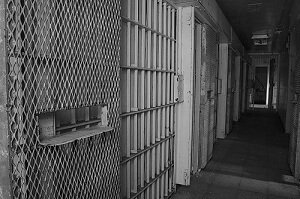 Social justice principles suggest that no person should suffer in the civilized world, neither physically nor emotionally. But people in different societies tend to be careful with this statement, because it serves as an argument for euthanasia. There are only a few countries where assisted suicide is legalized. However, even in the Netherlands, Luxembourg and Belgium, it is still highly debatable, whether people with life sentences and no chance of parole should be eligible to euthanasia as an alternative to their torture.
Social justice principles suggest that no person should suffer in the civilized world, neither physically nor emotionally. But people in different societies tend to be careful with this statement, because it serves as an argument for euthanasia. There are only a few countries where assisted suicide is legalized. However, even in the Netherlands, Luxembourg and Belgium, it is still highly debatable, whether people with life sentences and no chance of parole should be eligible to euthanasia as an alternative to their torture.
In September 2014, in Belgium, Frank Van Den Bleeken was allowed voluntary euthanasia. The man was imprisoned for life since 1980s for a series of rapes and murders. His legal representatives had been trying to gain approval for euthanasia during three years before they succeeded. After having served for over 30 years, Van Den Bleeken started asking for assisted suicide due to the fact that he suffered from a psychiatric condition and could never be paroled because of his danger to the society. While it was the first case where the right to euthanasia was granted to a convicted person, Van Den Bleeken was later transferred to a psychiatric facility instead. No matter how the story has ended, it has become the first case when a person with no terminal illness was allowed a mercy injection.
In Belgium, any unbearable or incurable physical or psychological sufferings are enough to consider euthanasia as an option, but not an immediate solution. People with terminal illnesses are within this category. However, the very concepts of incurability or a “terminal illness” are debatable. Do they nullify the idea about maintaining or increasing the quality of life, as opposed to curing? While the life quality seems achievable in health programs and medical facilities, it is hardly imaginable in prisons, which makes convicts on life sentence similar to the terminally ill.
Imprisonment should be considered as unbearable suffering in many cases, as it quite often results in suicide attempts, especially when there is no chance for parole. The very existence might start to appear pointless to a person. For those who undergo the experience of a solitary confinement with no communication, full isolation but also a full absence of privacy, or no access to natural light, their psychological suffering may not stop but rather increase over time. It should be fair to allow such people choose whether they want their tortures to continue.
On the other hand, imprisonment makes the condition of “voluntariness” complicated. It is hard to decide with certainty whether a free choice is possible under the situation of limited physical freedom. Moreover, mental competence of a sentenced person is often questioned, just like it was in the case with Van Den Bleeken. While the latter seemed aware of his own condition and his own danger to the society, he still was not granted the act of euthanasia, but transferred to a psychiatric institution.
Euthanasia for individuals with life imprisonment remains a highly debated and controversial issue, so that even most liberal countries toward the practice of mercy killing view it with caution. While the suffering of a convicted person with no parole can be compared to the suffering of a terminally ill, there are still some concerns, such as mental capacity or the extent to which this suffering can be regarded as incurable. In general, the issue of euthanasia always leads to the debate over human life protection versus the respect of human dignity.
References
- Cohen-Almagor R. “Belgian euthanasia law: a critical analysis”. Med. Ethics, 2009.
- Downie JG. Dying Justice: A Case for Decriminalizing Euthanasia and Assisted Suicide in Canada. University of Toronto Press, 2004
- Gaie JBR. The Ethics of Medical Involvement in Capital Punishment: A Philosophical Discussion. Springer Science & Business Media, 2006.
- Harris NM. “The euthanasia debate”. J R Army Med Corps, 2001.
- Otlowski M. Voluntary Euthanasia and the Common Law. Clarendon Press, 1997.
- Ronald H, ed. “Euthanasia”. The Encyclopedia of Libertarianism. Thousand Oaks, CA: SAGE Publications, Cato Institute, 2008.
- “Should a Belgian murdered be allowed euthanasia?” BBC Magazine. BBC, 7 January 2015.
